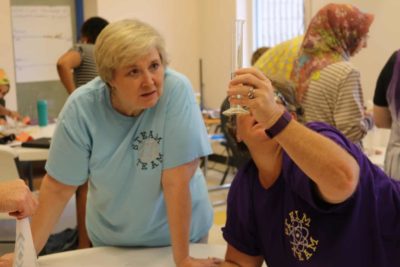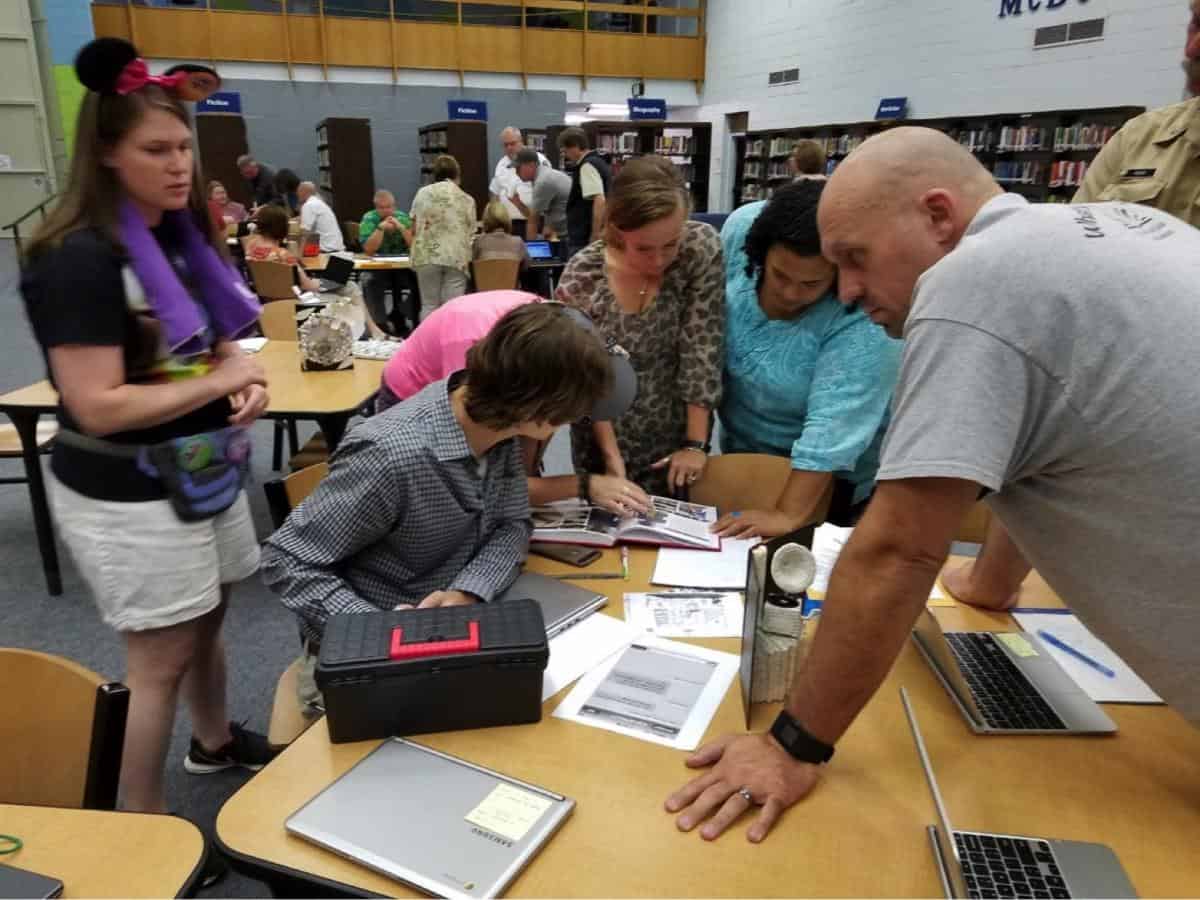As a North Carolina public school teacher, I am charged with a task I find both admirable and necessary: creating people that are “college and career ready.” Beyond teaching subject content, we should be sculpting and preparing students to be productive members of society. The lessons we teach should be relevant and current to today’s society. They should also go beyond content — they should teach skills. The question is, how?
I have been in the classroom for five years. I graduated from college five years ago to become a teacher; I have never worked a big corporate job. I have had blue collar jobs other than teaching, but those were years ago. I have had little experience in the professional world outside of teaching. Likewise, many teachers have only ever taught and have not worked in a professional industry outside of education. Teachers often know only what is needed to survive in the education world. Their professional networks are often limited to the educators around them.
How do I make my content current when I have been removed from the professional world for five years? What can we teach youth about the professional world if ours has been limited to the classroom? How do we prepare students for careers when the only one we have ever held is teaching?
A solution to this lack of modern information and experience is offering, facilitating, and funding professional development in the form of externships.
After completing such an externship provided to me through a grant in McDowell County, I learned so much to help shape my lesson plans tremendously. I went into a chemistry lab of a manufacturing business; as a science teacher, you are deeply rooted in the need to teach all things science.
After learning that all incoming employees are re-trained in the science and that your degree in science just shows your capability to do the work, my outlook on how I am preparing my students changed. It makes complete sense that companies retrain the specific skills needed to match the desired outcome of the job at hand. What they can not teach is professionalism, responsibility, basic writing skills, time management, note taking, promptness — all the things that I could easily do by holding my students accountable in different and more effective ways.
It also made me realize what aspects of science on which to focus to give them basic skills that they can build on later. It opened my eyes to the need to not only teach content in a basic, easy-to-understand way, but also the need to teach other career skills.
This experience also aided me in building bridges between education and the organization. Externships tie these companies closer to the education system and make them invested in the process. It allows them to become stakeholders while the teachers create a professional network outside education to draw from when they need support. It opens the door for business and professional leaders to come to the school system to lead professional development and serve as a resource for teachers to help shape content instruction to career demands.
Many companies in North Carolina are lacking in a well-trained employee pool and need a more capable workforce. This partnership is waiting and willing to be created. We just have to step up and seize it. Many N.C. business will stipend teacher externships if the interest is shown, as well as many programs in schools like Career and Technical Education (CTE) programs. Whether this happens over the summer or throughout the school year, the benefits of teachers in the workforce outside the classroom is immeasurable.
Allowing teachers to be sponsored by a business, company, or organization would open doors for better preparation for our students. Not only does it allow teachers to stay up-to-date on what employers are seeking and asking of our students, it also enables teachers to be a part of a professional environment beyond the classroom. This practical knowledge allows us to teach our students about professional behavior.
In the end, finding funding and necessary support for externships to become a reality for all teachers would in turn help students be college and career ready. In this season, as we teachers start to search for professional development opportunities for the summer, more teachers should consider an externship and show districts that there is a need for this partnership and support.
Recommended reading


